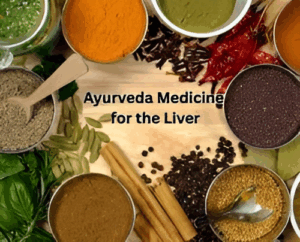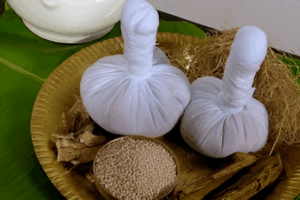Deep Tissue Massage: Unwinding the Tension
Deep tissue massage is a specialized form of bodywork that targets the deeper layers of your muscles and connective tissues. Unlike a traditional relaxation massage, it employs firm pressure and slow strokes to alleviate chronic pain, reduce muscle stiffness, and improve overall well-being. This therapeutic technique is particularly beneficial for individuals experiencing persistent discomfort or recovering from injuries.
Understanding Deep Ayurvedic Massage
Deep tissue massage focuses on releasing chronic muscle tension and knots, often referred to as adhesions. These knots can develop due to repetitive strain, injuries, or poor posture. By applying concentrated pressure to these areas, the massage therapist helps break down the adhesions and restore normal muscle function.
Benefits of Deep Kerala Massage
- Pain Relief: One of the primary reasons people seek deep tissue massage is to alleviate chronic pain. It is particularly effective for conditions such as back pain, neck pain, headaches, and muscle strains.
- Improved Circulation: The deep pressure applied during the massage stimulates blood flow, delivering essential nutrients and oxygen to the muscles. This increased circulation helps to remove waste products and reduce inflammation.
- Enhanced Flexibility: By releasing tight muscles and connective tissues, deep kerala massage can significantly improve flexibility and range of motion. This is particularly beneficial for athletes and individuals with limited mobility.
- Stress Reduction: While deep ayurvdic massage is primarily focused on physical ailments, it also offers mental and emotional benefits. By releasing tension and promoting relaxation, it can help reduce stress and anxiety.
- Improved Posture: Chronic muscle tension can contribute to poor posture. Deep tissue massage can help correct muscle imbalances, leading to improved alignment and reduced pain.
- Boosted Immune System: Some studies suggest that massage therapy, including deep tissue, can enhance the immune system function by increasing white blood cell count.
- Better Sleep: By reducing stress and physical discomfort, deep kerala massage can contribute to improved sleep quality.
What to Expect During a Deep Ayurvedic Massage
A deep tissue massage is a more intense experience than a relaxation massage. You may feel some discomfort during the session, but your therapist will adjust the pressure based on your feedback. Open communication with your therapist is essential for a successful treatment.
The massage therapist will use their hands, forearms, and elbows to apply pressure to the targeted areas. They may also use techniques like stretching and friction to release tension. After the massage, you may experience some soreness, similar to muscle soreness after a workout. This is normal and should subside within a few days.
Considerations Before Getting a Deep Ayurvedic Massage
- Consult Your Doctor: If you have any underlying health conditions, it’s crucial to consult with your doctor before receiving a deep tissue massage.
- Inform Your Therapist: Be open and honest with your therapist about your medical history, pain levels, and areas of concern.
- Hydration: Drink plenty of water before and after your massage to help flush out toxins released during the treatment.
- Avoid Alcohol and Caffeine: These substances can increase sensitivity and interfere with the massage’s benefits.
The Role of Deep Ayurvedic Massage in Ayurvedic Healing
At Ashtanga Ayurveda Medical Centre Dubai, we believe in a holistic approach to well-being. While deep tissue massage is not a traditional Ayurvedic treatment, it can complement Ayurvedic therapies and offer additional relief for muscle tension and pain. Our experienced therapists can incorporate Ayurvedic principles into the massage, such as using warm herbal oils to enhance relaxation and promote healing.
Deep kerala massage can be a valuable tool for managing chronic pain and improving overall well-being. However, it’s essential to choose a qualified therapist and listen to your body’s signals. By combining deep tissue massage with other self-care practices and potentially Ayurvedic treatments, you can experience significant improvements in your physical and mental health.
FAQ:
1. Is deep tissue massage painful?
While deep tissue massage can be intense, it shouldn’t be excruciating. Your therapist should adjust the pressure based on your comfort level. Some discomfort is normal, but severe pain is not.
2. How often should I get a deep Ayurvedic massage?
The frequency of deep kerala massages depends on your individual needs and goals. Some people benefit from weekly sessions, while others may find monthly treatments sufficient. It’s best to consult with your therapist to determine the optimal frequency for you.
3. What are the benefits of deep kerala massage compared to a regular massage?
Deep tissue massage focuses on releasing chronic muscle tension and addressing deeper layers of muscle tissue. While both types of massage can be relaxing, deep tissue massage is specifically designed to target pain and improve mobility.
4. Can deep tissue massage help with specific conditions?
Yes, deep kerala massage can be beneficial for various conditions, including chronic pain, muscle injuries, headaches, and postural issues. However, it’s essential to consult with your healthcare provider before starting any new treatment.
5. How can I prepare for a deep kerala massage?
To maximize the benefits of your deep ayurvedic massage, stay hydrated before and after the session. Avoid caffeine and alcohol before the treatment. Communicate openly with your therapist about your pain tolerance and areas of concern.









